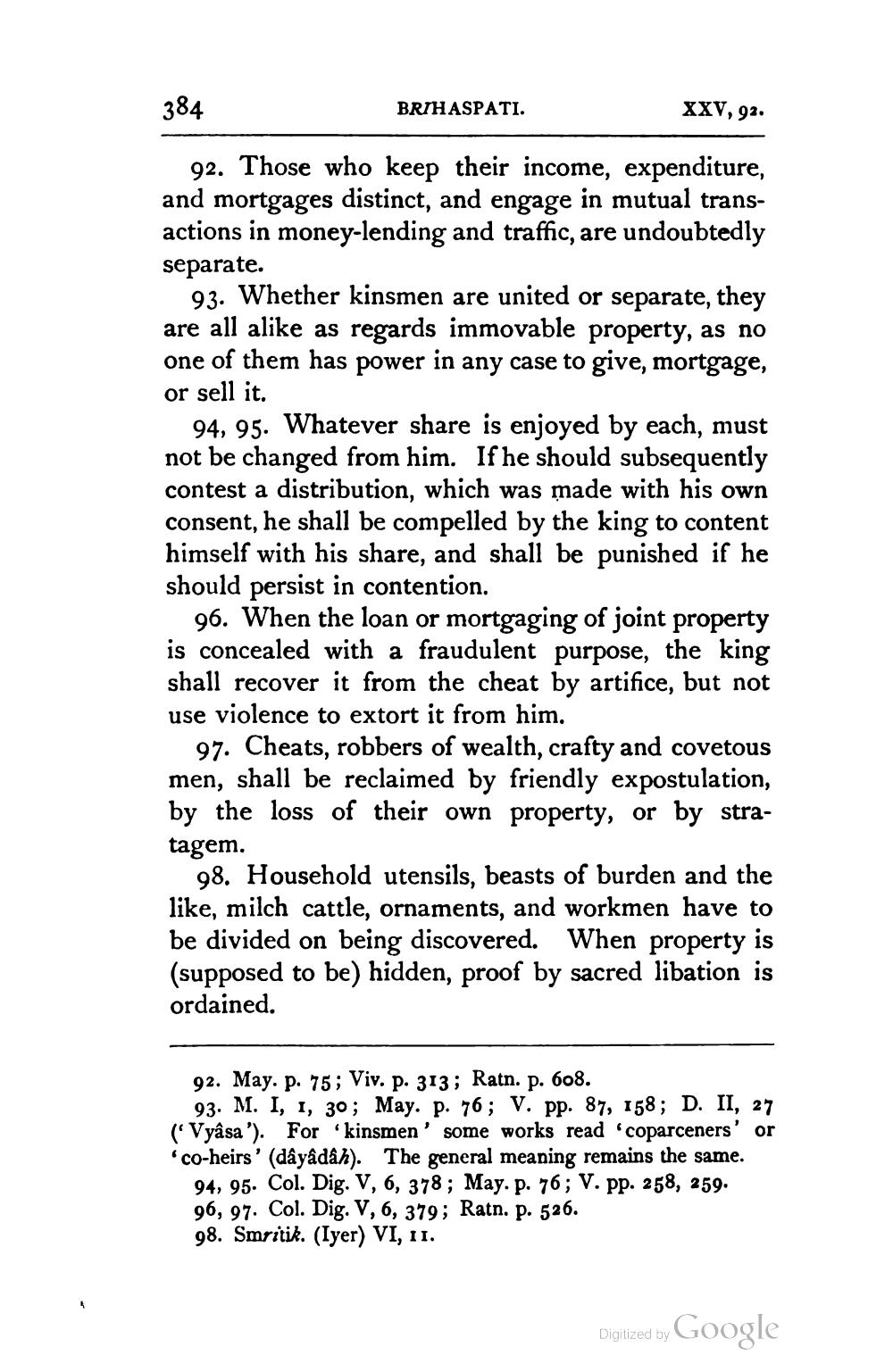________________
384
BRIHASPATI.
XXV, 92.
92. Those who keep their income, expenditure, and mortgages distinct, and engage in mutual transactions in money-lending and traffic, are undoubtedly separate.
93. Whether kinsmen are united or separate, they are all alike as regards immovable property, as no one of them has power in any case to give, mortgage, or sell it.
94, 95. Whatever share is enjoyed by each, must not be changed from him. If he should subsequently contest a distribution, which was made with his own consent, he shall be compelled by the king to content himself with his share, and shall be punished if he should persist in contention.
96. When the loan or mortgaging of joint property is concealed with a fraudulent purpose, the king shall recover it from the cheat by artifice, but not use violence to extort it from him.
97. Cheats, robbers of wealth, crafty and covetous men, shall be reclaimed by friendly expostulation, by the loss of their own property, or by stratagem.
98. Household utensils, beasts of burden and the like, milch cattle, ornaments, and workmen have to be divided on being discovered. When property is (supposed to be) hidden, proof by sacred libation is ordained.
92. May. p. 75; Viv. P. 313; Ratn. p. 608.
03. M. I, 1, 30; May. p. 76; V. pp. 87, 158; D. II, 27 (Vyâsa'). For 'kinsmen' some works read 'coparceners' or 'co-heirs' (dâyâdân). The general meaning remains the same.
94, 95. Col. Dig. V, 6, 378; May. p. 76; V. pp. 258, 259. 96, 97. Col. Dig. V, 6, 379; Ratn. p. 526. 98. Smritik. (Iyer) VI, 11.
Digitized by Google




